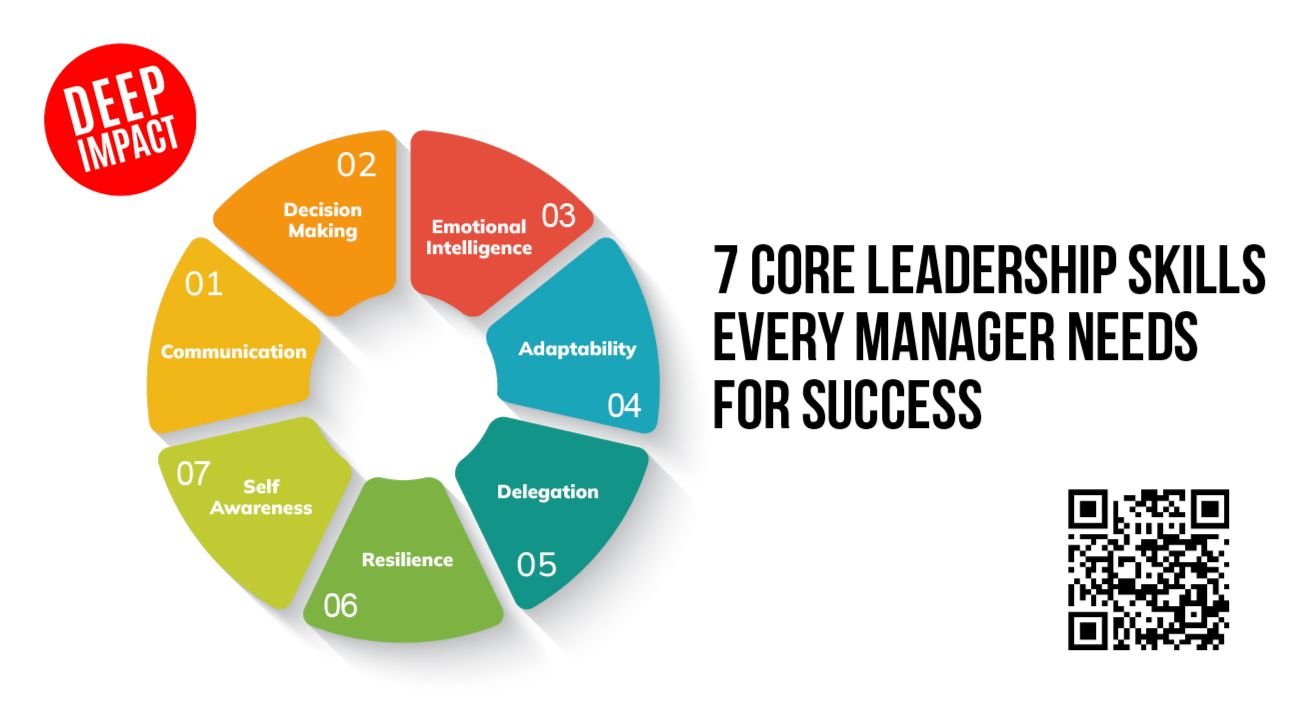The Importance of Mentorship: Abilities for Future Leaders

In today's fast-paced and constantly shifting corporate landscape, the role of effective leadership has never been as crucial. Emerging leaders must develop a diverse set of abilities to manage complex challenges and inspire their teams to achieve success. Mentorship plays a critical part in this journey, offering guidance, assistance, and the exchange of invaluable insights. Through mentorship, experienced leaders can help nurture the next generation of leaders, equipping them with the tools necessary to thrive.
In exploring the significance of mentorship in developing leadership skills, we will delve into the ten essential skills every professional should acquire. From strong communication and emotional intelligence to adaptability and critical thinking, these competencies are foundational for any leader. Understanding how to develop strong decision-making abilities and fostering a culture of trust within a team are just a couple of the areas we will cover. Whether you are looking to refine your own leadership approach or looking to empower others, the journey of growth through mentorship is one that can benefit all involved.
Essential Executive Abilities

Effective leadership is established on a base of essential skills that each professional must command to excel in their positions. Notably, decision-making is paramount as a crucial ability. A capable leader analyzes situations thoughtfully and makes wise choices, balancing the potential risks and benefits. Developing sound decision-making doesn't happen overnight; it necessitates practice, experience, and often input from others. This skill influences not only the leader's effectiveness but also guides the overall direction of the team or organization.
Another vital skill is emotional intelligence, which plays a critical role in how leaders communicate with their teams. Understanding and managing an individual's emotions, as well as empathizing with others, can lead to enhanced relationships and improved workplace dynamics. Leaders who cultivate this skill are more prepared to handle challenges, foster a constructive work environment, and encourage others to attain their best. By investing in emotional intelligence, leaders can create a culture of trust and collaboration.
In conclusion, effective communication is a foundation of great leadership. This skill encompasses not just articulating ideas clearly but also actively listening to team members and fostering an open dialogue. Leaders who communicate effectively can ensure that everyone is on the same page with the organization's goals and feels appreciated in their contributions. By refining communication skills, leaders can overcome barriers, encourage feedback, and enhance overall team performance.
Cultivating Executive Skills
To excel as a manager, individuals must proactively pursue to cultivate essential competencies that align with their company goals and collective dynamics. Leadership is not a universal role; it encompasses a diverse range of skills that can be nurtured over time. Included in https://www.peterashbysmith.com/ , effective communication is vital as a cornerstone of great management. Leaders must be able to articulate their vision clearly and encourage others to connect with that vision. Alongside strong decision-making abilities, leaders can navigate difficult challenges and encourage a cooperative environment where team members feel appreciated and heard.
Another critical competency is EQ, which allows leaders to grasp and manage their feelings while also relating with others. This ability aids in establishing confidence within groups, enabling leaders to boost engagement and motivation. Dynamic listening plays a key role in this approach, as it ensures that employees feel valued and understood. By developing these interpersonal skills, leaders can create a positive atmosphere that facilitates transparent dialogue and strengthens solid connections, ultimately improving group efficiency.
Flexibility is also an important leadership competency in today's fast-paced and ever-changing business environment. Leaders must be prepared to embrace change and exhibit resilience in the midst obstacles. Learning agility, or the ability to learn from experiences and adapt to new situations, is vital for sustainable achievement. A leader who can navigate uncertainty and model adaptability encourages their group to face changes with a positive mindset. By concentrating on developing these core skills, aspiring leaders can position themselves as effective figures who promote both personal and organizational development.
The Role of Mentoring in Leadership Growth
Mentoring plays a key role in developing leadership qualities that are essential for upcoming leaders. By supporting new professionals, mentors provide precious insights, disseminate their knowledge, and offer advice that helps students navigate challenges and make wise decisions. This relationship fosters a environment of education and allows students to gain practical skills such as effective communication and conflict resolution, which are important for effective leadership.
Mentorship also boosts emotional intelligence, as mentors often model self-awareness and understanding in their relationships. As protégés watch and interact with their mentors, they learn to understand their own emotions and those of others, leading to better relationships and better team cohesion. This aspect of mentorship not only benefits the mentees but also contributes to creating a supportive workplace culture where support and motivation thrive.
Furthermore, mentoring encourages leaders to be flexible and strong in the face of transformation. Mentors can provide strategies for navigating uncertainty and guiding varied teams, equipping students with the tools necessary to handle various situations effectively. By supporting the growth of new leaders, mentors not only develop the individual but also enhance the overall competence and viability of their companies.
